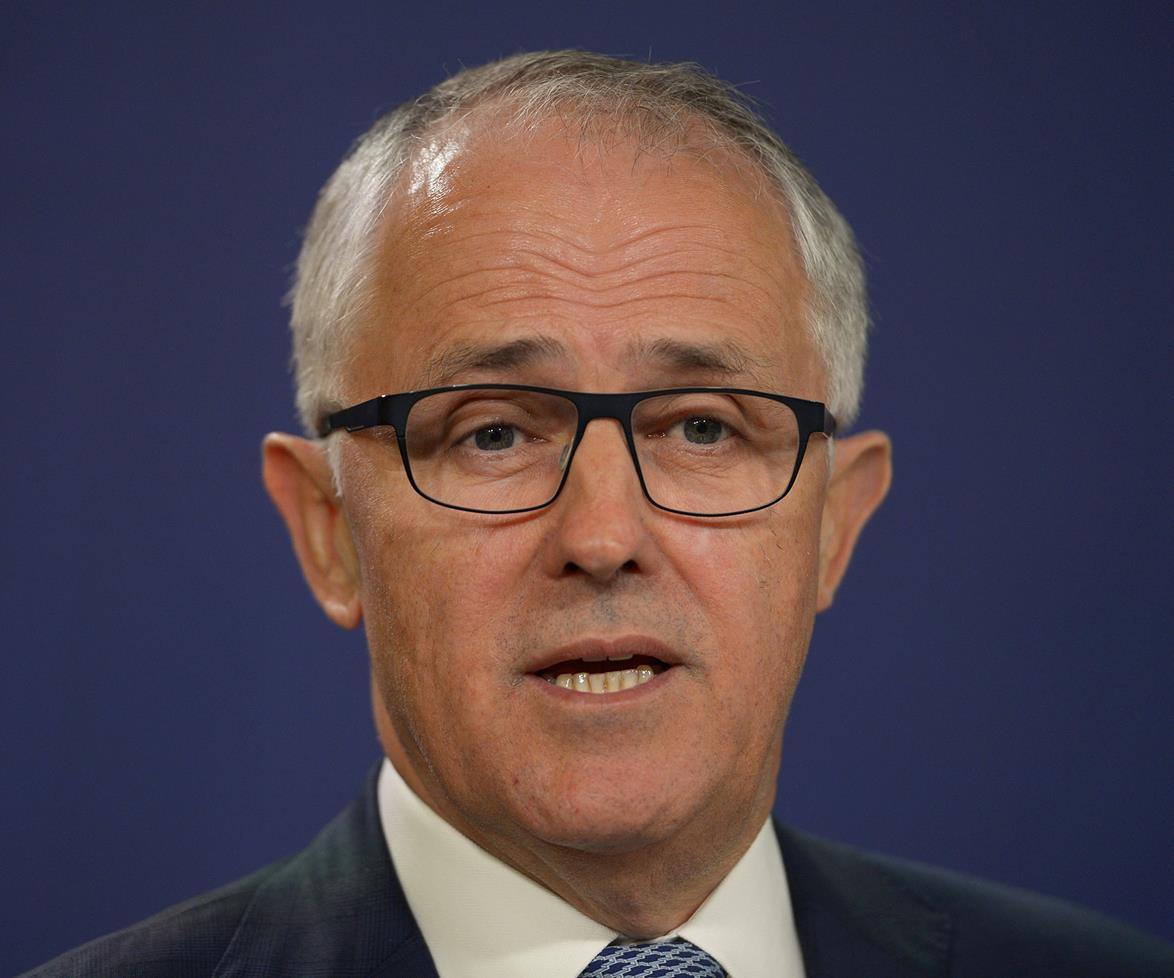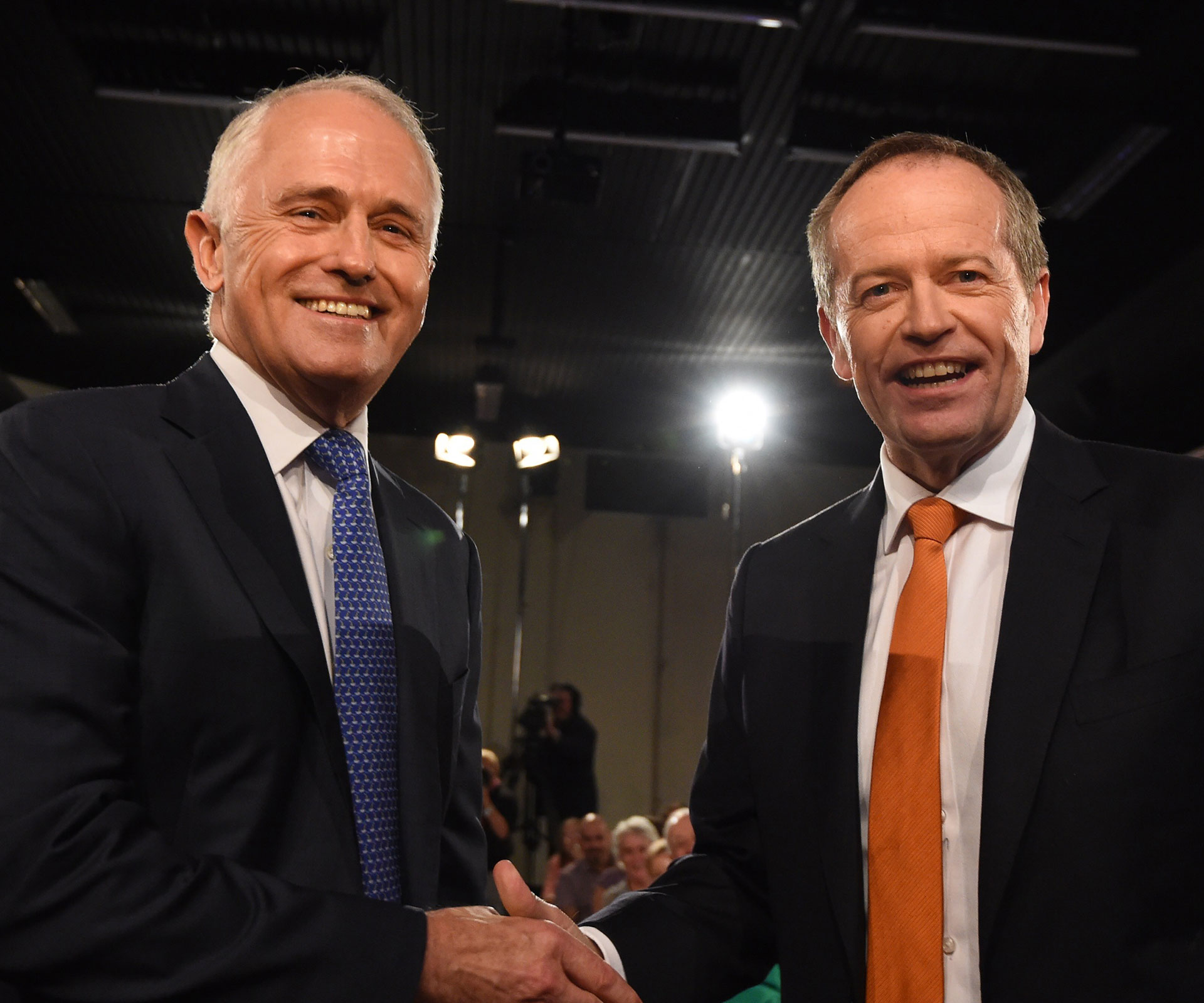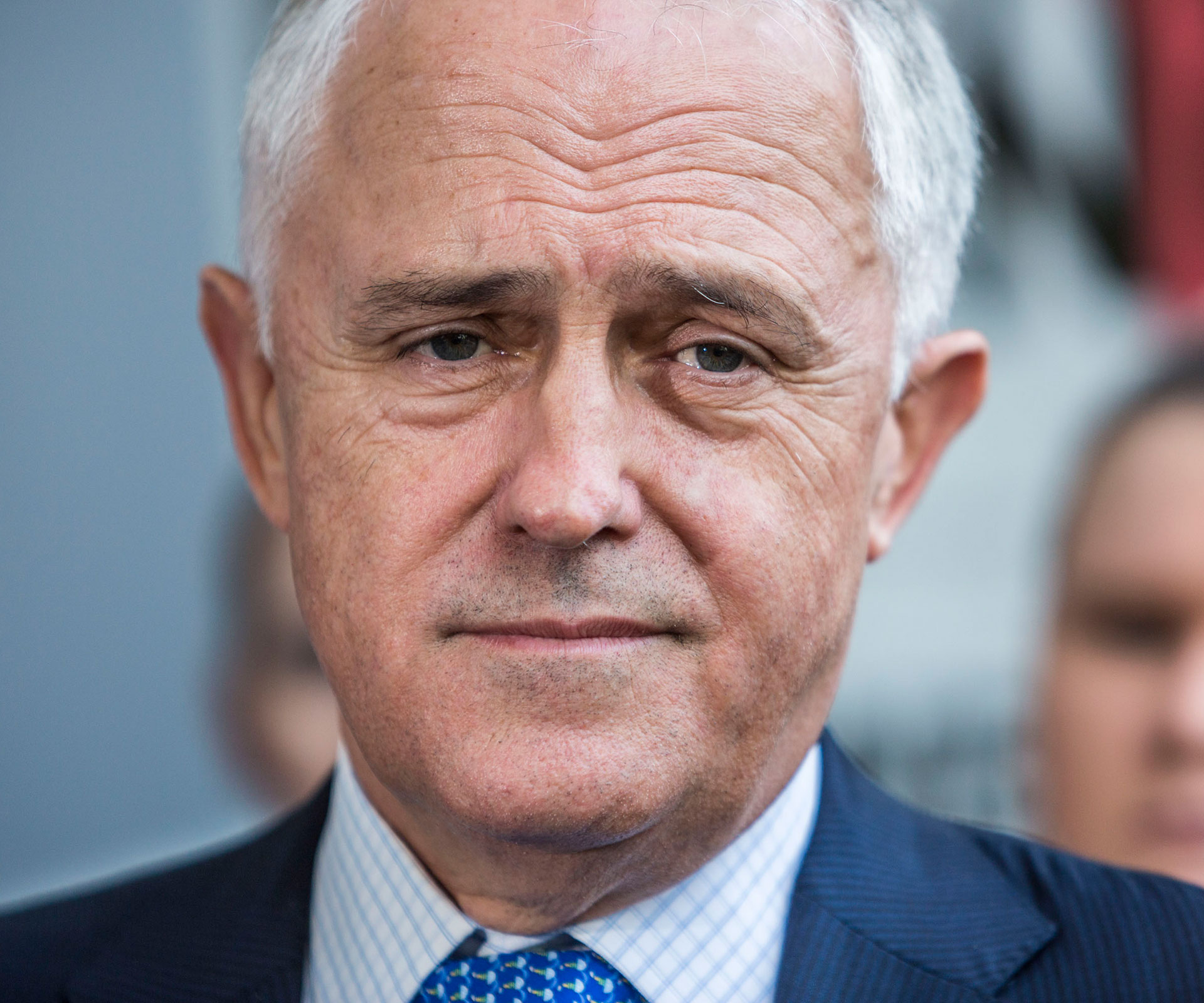It’s still early days in the federal election campaign, but even now one thing is clear: the Turnbull Government is convinced the best thing it can do for Australian women is deliver a strong economy.
Malcolm Turnbull and his team are relying on what voters tell opinion pollsters are most important to us. Jobs and the cost of living are always high on the list. And we want to know the economy is being managed by a government that knows what it’s doing.
The Coalition’s pitch to Australian women this election is that the current government is better at running the economy than the other mob.
Even if you haven’t paid much attention to the campaign, you may be aware the Coalition has a “plan for jobs and growth”. That’s because government MPs can’t stop talking about the plan every time they see a camera or a microphone.

Malcolm and wife Lucy
Constant talk of a plan is meant to make you feel confident the PM Malcolm Turnbull and his Treasurer Scott Morrison have everything under control.
There are a lot of parts to this fabulous plan, but the biggest and most expensive element is tax cuts for business. The Government plans to give smaller businesses a tax cut right away, and then give it to bigger and bigger business over the following ten years.
The Government hopes business owners will invest the extra money to expand their businesses (that’s the “growth” part of “jobs and growth”) and take on additional staff (that’s the “jobs” part).
All Australians are expected to benefit as businesses supposedly flourish and pour dollars back into the economy. Not everyone is convinced, however, that this will actually happen.
Aside from trying to deliver a strong economy, the Coalition has a number of other election promises that it says will benefit women.
For women with children, there are improvements to childcare subsidies, but these won’t kick in until July 2018. The Government also plans to restrict new mothers to accessing only one form of paid parental leave, either the government’s or their employer’s.

The future Prime Minister will need to impress Australia’s women with their election promises
There’s a job training program for young people to prepare them for employment, which includes temporary placement in a real workplace.
There’s also increased funding for health and education, but not to the same levels being promised by the Labor opposition.
The Government has however promised a new scheme that will give young adults with cancer, who were previously considered either too old or too young to participate in clinical trials, the opportunity to also access the latest cancer-fighting treatments.
There’s money to subsidise a glucose monitoring device for children and young adults with severe Type 1 diabetes, and to extend the free government dental scheme to all children and young adults.
On women’s health, the Government has offered modest increases to funding for Medicare to cover the use of MRIs to detect certain types of breast cancer, for an online tool to help women with perinatal depression, and to treat Fetal Alcohol Spectrum Disorders.

Malcolm and Bill Shorten will go head-to-head at the polls on July 2
On domestic violence, there’s a Women’s Safety Package that includes an advertising campaign, GPS trackers and an expansion of the national family violence counselling and information service. But the Coalition has not committed to restoring the funding to legal centres and services that were cut by the Abbott Government.
For working women, the Government has promised to strengthen laws that punish employers for underpaying and exploiting workers, and provide a small tax cut to people fortunate enough to earn over $80,000.
The Minister for Women, Michaelia Cash, has also promised to release a “comprehensive policy” to boost women’s workforce participation during the election campaign.
There are some good changes to superannuation proposed by the Government, such as providing around two million women on low incomes with a refund of the higher taxes they pay on some super contributions.
Women with less than $500,000 in super would also be able to make “catch-up” contributions and high-income spouses would be allowed to put more funds into their low-income spouse’s super.
These are the main elements of the Coalition’s election pitch to women so far. Of course, there’s no such thing as a free lunch when it comes to campaign promises. We know politicians tend to give with one hand just as they take away with the other.
So it is wise to expect that for every promise from the Coalition of a new scheme or increased funding, something else will be scrapped or cut to pay for it. The trick is to get the balance right.
In preparation for election day, which falls on July 2, it’s worth checking to see if you are on the electoral roll and your details are correct. If you’re not yet registered to vote, you can enrol online at the Australian Electoral Commission.
Next week: The Labor Opposition’s election pitch to Australian women.


